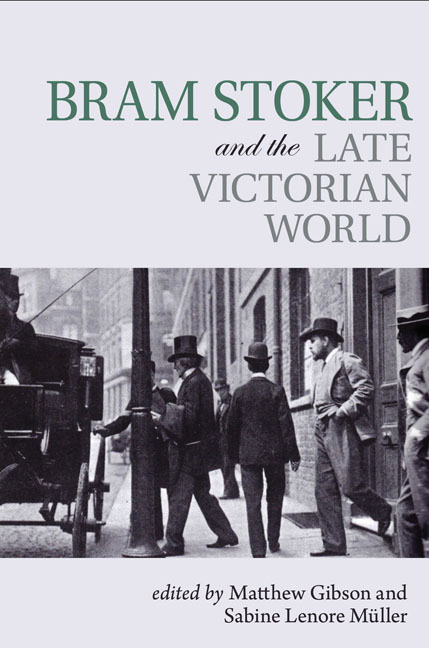Coda: An Unpublished Letter from Bram Stoker to Laurence Hutton
Summary
The travel writer and theater critic Laurence Hutton (1843–1904) was one of the few people to retain Bram Stoker's correspondence to him, just as Stoker himself kept Hutton's letters. Hutton, who was closely associated with another correspondent of Stoker’s, the American academic Brander Matthews (1852–1929), was a quixotic character, traveling inexorably every summer and acting as literary editor for Harper’s Magazine from 1886 to 1898.
Hutton's correspondence with Stoker shows a sense of great bonhomie, despite being about the usual business with which Stoker dealt on a daily basis: arranging tickets, introducing on one occasion an artist to Stoker to provide an illustration of Henry Irving, and so on. In 1884 the Lyceum Theatre Company traveled extensively within the States, and they performed in New York in both April and November of that year, prompting dinner invitations from Hutton to Stoker at his home at 229 West 34th Street in New York. One letter dated April 3, 1884 invites him to dinner there the following Sunday, while another, dated April 22, 1884, asks Stoker to send autographed pictures of Henry Irving and Ellen Terry. In both letters Hutton makes reference to “carving,” punning in the first case on the idea of carving a roast, but presumably intending the idea of playfully attacking people through satirical banter, which is certainly how the term is used in the second. When Stoker replies to another dinner invitation at Hutton's home, he happily refers back to this phrase, while showing off his knowledge of both Shakespeare and various humorists.
14 Novr 1884
Star Theatre
My dear Hutton
on lunch at 1.30 “I shall
have a banquet with certain politic
worms” at 229 West 34th
Hamlet reasimalized
“I shall go to carve a sheeps head”
Benedick (recollections of)
“I shall walk with you talk with you
eat with you drink with you swear
at you.” Shylock in his later days, at the
“Daft house”. (no 229 W. 34.)
[New page – verso]
“Fate cannot harm me I shall have
lunched that day”.
old writer – name of no
consequence
“It takes a surgical (or carving) operation
to get a joke into the head of a
Scotchman” – Lamb
“They carved in a way that all
admired”
John Hay
- Type
- Chapter
- Information
- Bram Stoker and the Late Victorian World , pp. 215 - 218Publisher: Liverpool University PressPrint publication year: 2019

